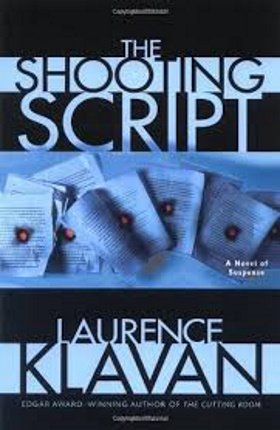“Your friend,” I said, hesitatingly, nodding over to my other side, “he took pictures of the match?”
She shrugged, cutely. Then, reaching across me, giving me a full whiff of her perfume, she tapped her friend on the arm. Then she asked him the same question in—was it Dutch?
Her pal pointed to his leather bag and nodded. Then he pressed his own leg, much less pleasantly, against my other bare thigh.
“What,” he said, sort of in English, “you want prints?”
“Well, no, not really. See, I—”
“Too bad. Digital,” he said. Then he made a sweeping hand gesture and gave a whooshing sign. “All wiped out.”
I sighed, very deeply. I was about to ask him if he’d seen a clown—or a mime, pronounced meem—when the limo came to a sudden halt. One of its massive doors opened, and I saw the gate to Howie’s driveway.
“We’re going on to the city,” my new female friend said, sweetly. “But it was very nice to meet you.”
There seemed nothing underhanded or even complicated about her friendliness. I found myself extending my hand to her, very sincerely.
“Roy Milano,” I said.
“Marthe Ludwig,” she replied.
The name stopped me, my hand still holding hers. Then I felt a finger tap my shoulder.
“Thanks,” Thor said, from behind me, “for taking care of my wife.”
I turned around, uneasily, afraid to find his fist in my face. But Thor was leaning forward, with great, creaking effort, to shake my hand, too. He turned it into an athlete’s grip, our thumbs intertwined.
“Nice match, man,” he said, clearly not recalling it.
Within a second, I was on the street. I thought that Thor had certainly changed partners since divorcing Gratey McBride. The limo pulled away, one of its windows slightly down. Thor’s wife made the charades gesture that meant moviemaking. Then she waved at me with—could it be true?—actual fondness.
—
The next night, Dena’s backrub was not so fond. It had less to do with my description of Marthe Ludwig—about whom I guessed I gushed—than with my aching back, legs, and arms.
“If it doesn’t hurt,” she said, squeezing and pounding me, “it’s not helping.”
That seemed to describe Dena’s approach to life in general. She didn’t spare herself, either, as karate-chopping my lower back, she assessed her quest for her father’s story.
“I guess I’m a lot like him. Going from one thing to another.”
“You at least tried,” I said, wincing, “to become a lawyer.”
She ignored this pep talk. “If this person chasing you is the same one who confronted him … there’s a lot I still don’t know.”
I nodded. “It’s true. Like, for instance … if it is the same guy, and he stole Clown from your father, what does he want from me now? And if your father didn’t have Clown, and so this guy didn’t steal it, what does he want from me now?”
Dena relaxed her fingers then, keeping a gentle hold of my shoulders. Her hold on her life was just as tentative, I figured. Maybe she wanted to resolve her father’s past purely for herself; otherwise, she couldn’t get on with anything. Was I just the vehicle to help her? With Dena resting on my back, I was reminded of a child riding on a flying dragon, something out of The Seven Ordeals of Quelman. Maybe it was the painkillers talking.
I turned over, slowly, not wishing to fling her away. We ended up with Dena on my stomach, her punk hair undone, falling in my face. There was no more question of straps or shoulders; she was braless through her middle-aged silk shirt.
She moved her hair out of her eyes. She began to descend toward me and not for more Shiatsu. I began to lean up, to meet her. Then we both stopped. As before, something curtailed our interaction.
And it wasn’t just Howie.
“Hey, Roy!” he was calling through the closed door. “Come on! Let’s go!”
—
Howie claimed he had already told me; of course, he hadn’t. After being forced to drive his car and return his serve, I would never have agreed to go with him to a comedy club.
“It’s where I got my start,” he said, as we barreled along the Long Island Expressway in his least ostentatious car, an SUV. “Smirk’s is the club where I first told a joke.”
“But why are we going there now?” It was already nine at night, and the club was in Manhattan.
Howie took this as a jibe, which it was, but it was also a fair question. “I like to see what the new people are doing. There something wrong with that? My kid’s asleep, Luna’s on the phone. What am I supposed to do, play Scrabble with you?”
Howie’s hostility was rearing its ugly head more and more often. I worried that we hadn’t even formally discussed our main topic, and our relationship had already disintegrated. With me hardly saying a word.
“Look,” I said, shouting over the rushing air, “maybe we ought to talk about the … you know, Clown. What you know about Clown.”
“We’ll do that,” he said, defensively. “It’s not going to kill you to have a little fun first.”
It was a long way to go for fun—it took over two hours to reach the city. Howie parked in an expensive garage near Penn Station, a few blocks from where The Gladiola Hotel, Ted Savitch’s last address, stood in ruins. Smirk’s Comedy Club was on Fortieth, with a big yellow flag out front, featuring cartoon lips, pursed in amusement.
“I just want to see a couple of sets,” he said, as we went in. “You might actually enjoy it.”
If his reception at the tennis match was tumultuous, here Howie was greeted with silence. It wasn’t indifferent; it came from shock, disbelief, and reverence. In the dark, smoky club, open mouths and staring eyes followed Howie Romaine.

























